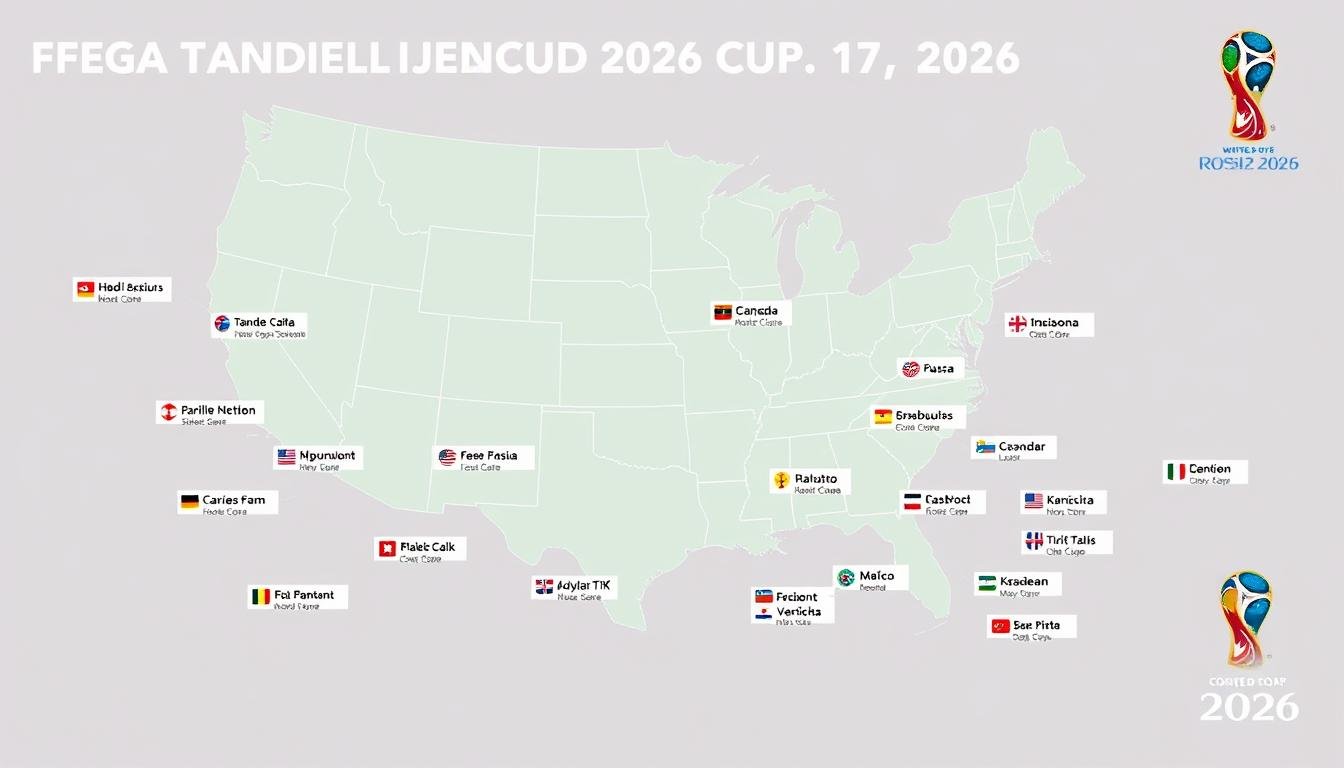The 2026 FIFA World Cup promises to be a landmark event in football history. For the first time ever, three nations—the United States, Canada, and Mexico—will jointly host the tournament, creating the most geographically expansive World Cup to date. With an expanded format featuring 48 teams and 104 matches across 16 iconic venues, this edition is set to break records for attendance, viewership, and global impact. Join us as we explore everything you need to know about this extraordinary sporting spectacle that will unite the world from June 11 to July 19, 2026.
The First Tri-Nation World Cup: USA, Canada, and Mexico
The 2026 World Cup marks a historic collaboration between three North American nations. This unprecedented hosting arrangement reflects FIFA’s vision for a more inclusive and expansive global tournament. Each host country brings its unique culture, infrastructure, and football heritage to create a diverse World Cup experience.
United States (11 cities)
As the primary host with 11 venues, the USA brings state-of-the-art stadiums and extensive experience hosting major international events. Cities from coast to coast will showcase America’s diverse landscapes and cultures.
Mexico (3 cities)
The first nation to host the World Cup three times (1970, 1986, 2026), Mexico contributes its passionate football culture and iconic venues like Estadio Azteca, which will host the opening match.
Canada (2 cities)
Making its World Cup hosting debut, Canada will welcome fans to Toronto and Vancouver, with BMO Field hosting the first-ever men’s World Cup match on Canadian soil.
This tri-nation approach creates unique opportunities for fans to experience different cultures, cuisines, and atmospheres while following the tournament. The collaborative hosting model also distributes the economic benefits and infrastructure investments across all three countries.
New 48-Team Format: More Teams, More Matches, More Excitement
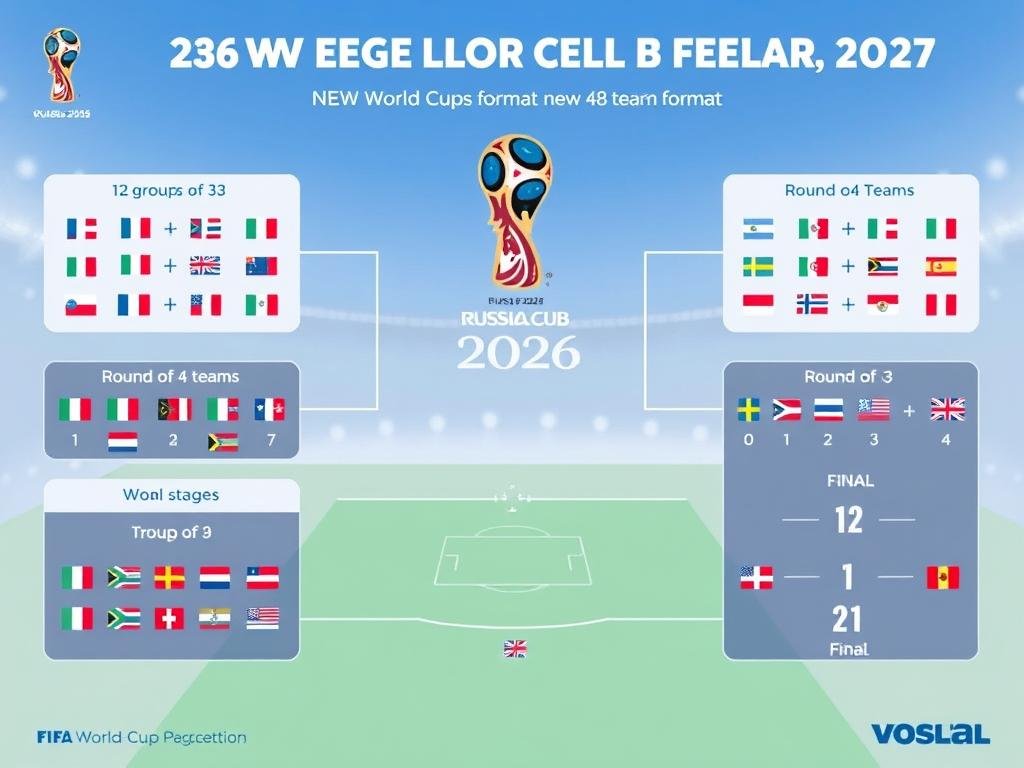
The 2026 World Cup introduces the most significant format change in tournament history, expanding from 32 to 48 participating nations. This revolutionary approach creates more opportunities for countries to qualify while delivering more matches for fans worldwide.
Key Format Changes
- 48 teams (increased from 32 in previous tournaments)
- 12 groups of 4 teams each (previously 8 groups)
- Top two teams from each group plus eight best third-place teams advance
- New Round of 32 knockout stage
- 104 total matches (up from 64 in previous format)
- Tournament duration: June 11 – July 19, 2026
This expanded format gives more nations the chance to compete on football’s biggest stage while creating additional knockout matches with high stakes. For fans, it means more opportunities to see their teams in action and more potential for dramatic upsets and Cinderella stories.
Stay Updated on World Cup 2026
Be the first to know about qualification updates, ticket releases, and tournament news.
Road to the 2026 World Cup: Qualification Process
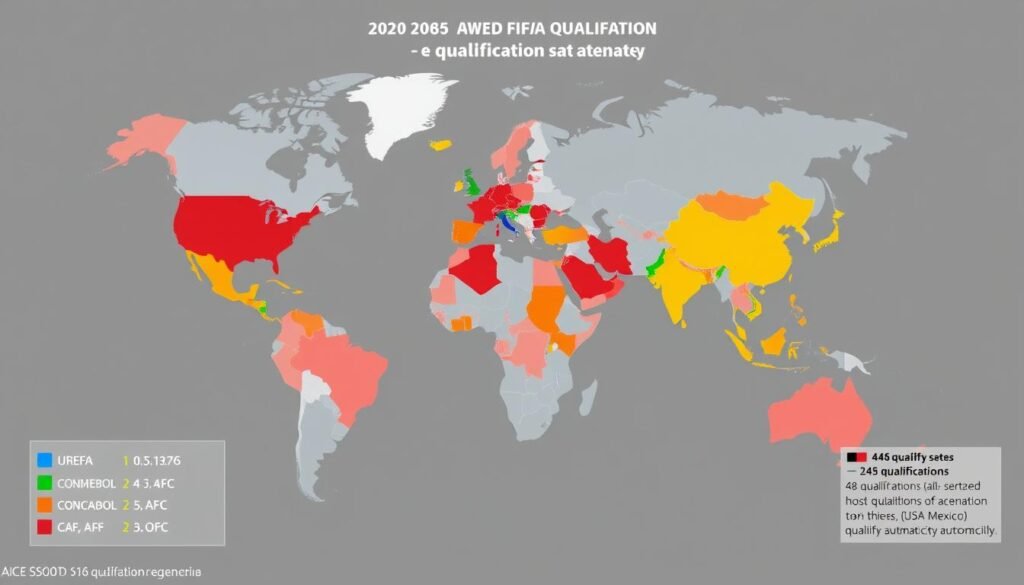
With 48 spots available, the qualification process for the 2026 World Cup offers more opportunities for nations across all six FIFA confederations. The qualification campaigns will run until March 2026, creating nearly three years of exciting international matches leading up to the tournament.
Qualification Slots by Confederation
| Confederation | Region | Slots | Playoff Slots |
| UEFA | Europe | 16 | 0 |
| CAF | Africa | 9 | 1 |
| AFC | Asia | 8 | 1 |
| CONMEBOL | South America | 6 | 1 |
| CONCACAF | North/Central America | 3+3 (hosts) | 2 |
| OFC | Oceania | 1 | 1 |
Already Qualified Teams
- United States (host nation)
- Mexico (host nation)
- Canada (host nation)
- Argentina (qualified as 2022 World Cup champions)
- Iran (early qualification through AFC)
- Japan (early qualification through AFC)
- New Zealand (qualified through OFC)
The qualification draw will determine the path for remaining nations, with qualifying matches continuing through early 2026. The final tournament draw is expected to take place in late 2025, when all 48 participating teams will learn their group assignments.
16 Spectacular Venues Across North America
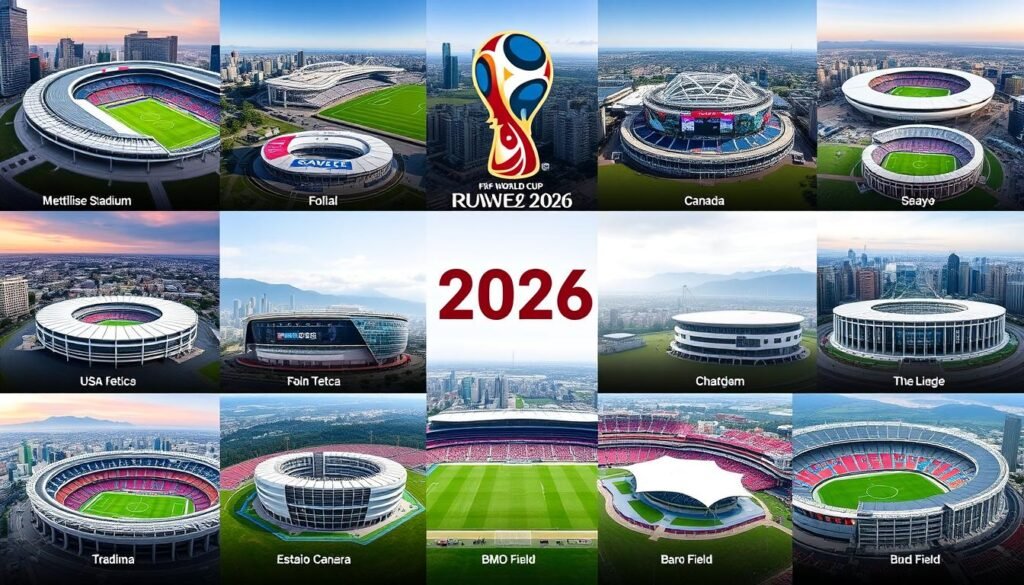
The 2026 World Cup will showcase 16 world-class venues across three countries, ranging from iconic football cathedrals to cutting-edge modern stadiums. Each venue offers unique characteristics and experiences for players and fans alike.
Key Venues and Milestone Matches
Estadio Azteca (Mexico City)
The legendary stadium will host the opening match on June 11, 2026, featuring Mexico. This marks the third time Estadio Azteca hosts World Cup matches, having previously staged the 1970 and 1986 finals.
Capacity: 87,523
BMO Field (Toronto)
Will host the first-ever men’s World Cup match on Canadian soil on June 12, 2026, featuring Canada’s national team. The stadium will be expanded to accommodate 45,736 spectators.
Capacity: 45,736
MetLife Stadium (New York/New Jersey)
Selected to host the prestigious World Cup Final on July 19, 2026. This modern venue offers excellent sightlines and premium amenities for the tournament’s climactic match.
Capacity: 87,157
Semi-Final Venues
AT&T Stadium (Dallas)
This architectural marvel with its retractable dome will host one semi-final on July 14, 2026. The stadium boasts the largest seating capacity among all World Cup 2026 venues.
Capacity: 92,967
Mercedes-Benz Stadium (Atlanta)
With its unique pinwheel-style retractable roof and massive circular LED scoreboard, this venue will host the other semi-final on July 15, 2026.
Capacity: 75,000
Other notable venues include SoFi Stadium in Los Angeles, Hard Rock Stadium in Miami (which will host the third-place match), and BC Place in Vancouver. Each stadium has undergone or will undergo renovations to meet FIFA’s exacting standards for World Cup matches.
Register for Ticket Information
Be among the first to access tickets when they become available. Pre-register now for official FIFA World Cup 2026 ticket information.
2026 World Cup Schedule: Key Dates and Matches
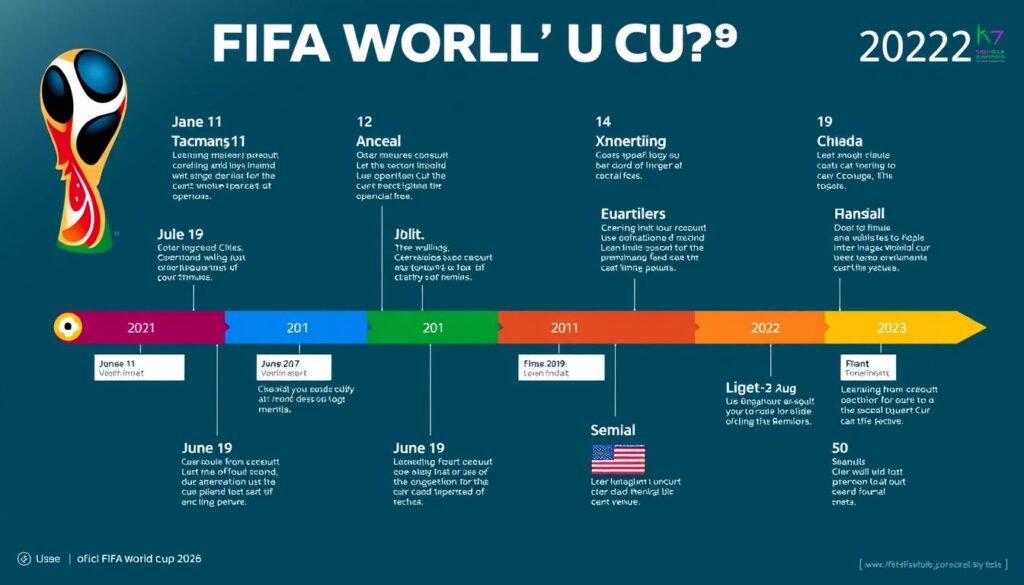
The 2026 World Cup will run for 39 days from June 11 to July 19, 2026, making it one of the longest tournaments in World Cup history. With 104 matches scheduled across 16 venues, fans will enjoy an unprecedented feast of football.
Tournament Timeline
- Opening Match: June 11, 2026 – Mexico vs. TBD at Estadio Azteca, Mexico City
- Group Stage: June 11-26, 2026 (72 matches)
- Round of 32: June 28-July 3, 2026 (16 matches)
- Round of 16: July 4-7, 2026 (8 matches)
- Quarter-finals: July 9-11, 2026 (4 matches)
- Semi-finals: July 14-15, 2026 (2 matches)
- Third Place Match: July 18, 2026 at Hard Rock Stadium, Miami
- Final: July 19, 2026 at MetLife Stadium, New York/New Jersey
Team USA Group Stage Matches
The United States Men’s National Team will play their group stage matches at:
- June 12, 2026: USA vs. TBD at SoFi Stadium, Los Angeles
- June 19, 2026: USA vs. TBD at Lumen Field, Seattle
- June 25, 2026: USA vs. TBD at SoFi Stadium, Los Angeles
The final draw determining all group matchups will take place in late 2025 after all 48 teams have qualified. This will finalize the complete match schedule including specific kickoff times.
The Ultimate Fan Experience
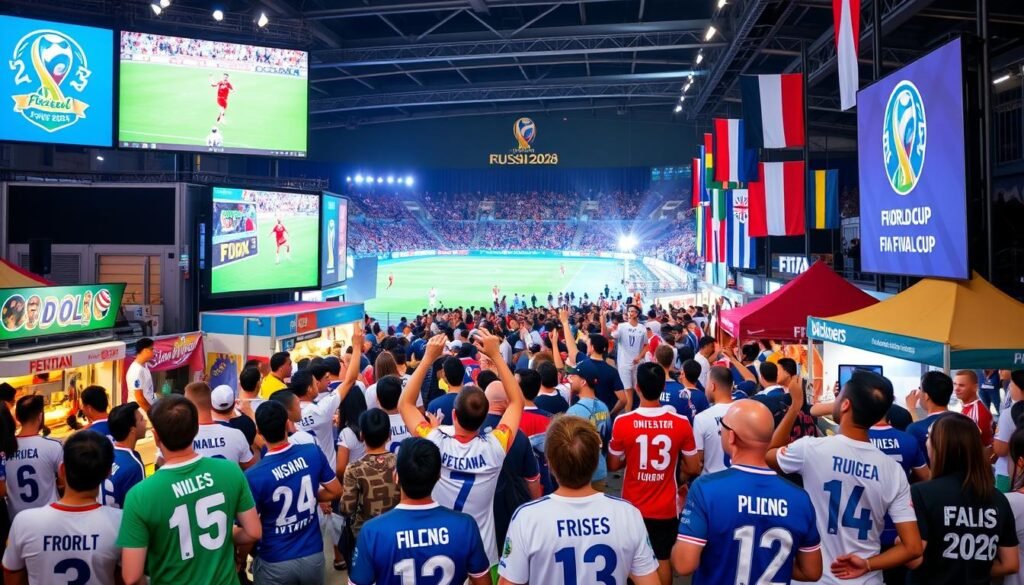
Beyond the matches themselves, the 2026 World Cup will offer fans unprecedented opportunities to engage with the tournament through official FIFA Fan Festivals, cultural events, and digital experiences.
FIFA Fan Festivals
Each host city will feature official FIFA Fan Festivals—free public events where fans can watch matches on giant screens, enjoy live entertainment, sample international cuisine, and participate in football-themed activities. These festivals create accessible ways for everyone to experience the World Cup atmosphere, even without match tickets.
For example, Toronto will host its FIFA Fan Festival at Fort York National Historic Site and The Bentway, creating a vibrant hub where global football culture meets local hospitality. Similar experiences will be available across all host cities.
Digital Innovation
The 2026 World Cup will leverage cutting-edge technology to enhance the fan experience both in stadiums and for viewers worldwide. Expect innovations in:
- Augmented reality stadium experiences
- Multi-angle viewing options for broadcasts
- Real-time player statistics and performance data
- Interactive digital platforms for global fan engagement
- Sustainable technologies to reduce the tournament’s environmental impact
These innovations will make the 2026 World Cup the most technologically advanced and accessible tournament in football history, allowing fans to experience the excitement in entirely new ways.
Making History: The Significance of World Cup 2026
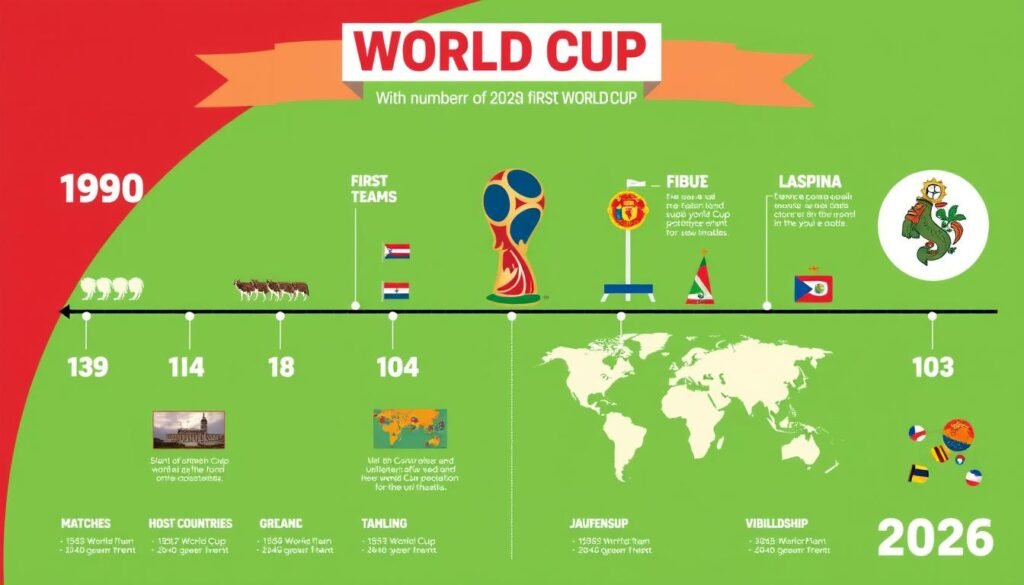
The 2026 FIFA World Cup represents several significant milestones in football history, setting new precedents for future tournaments while honoring the rich heritage of the world’s most popular sporting event.
Historical Firsts
- First World Cup hosted by three nations
- First 48-team tournament format
- First World Cup with 104 matches
- First men’s World Cup matches in Canada
- First World Cup to feature a Round of 32
Legacy and Impact
Beyond the matches themselves, the 2026 World Cup aims to leave lasting legacies across North America:
Sporting Legacy
Increased participation in football across all three host nations, improved coaching standards, and enhanced facilities that will benefit local communities for decades.
Economic Impact
Projected to generate billions in economic activity across host cities, creating thousands of jobs and boosting tourism in the years surrounding the tournament.
Cultural Exchange
Unprecedented opportunities for cultural exchange as fans from around the world experience the diverse cultures of the United States, Mexico, and Canada.
The 2026 World Cup will serve as a powerful demonstration of how football can unite diverse nations and cultures around a shared passion, setting new standards for international sporting events.
Countdown to Kickoff: Preparing for World Cup 2026
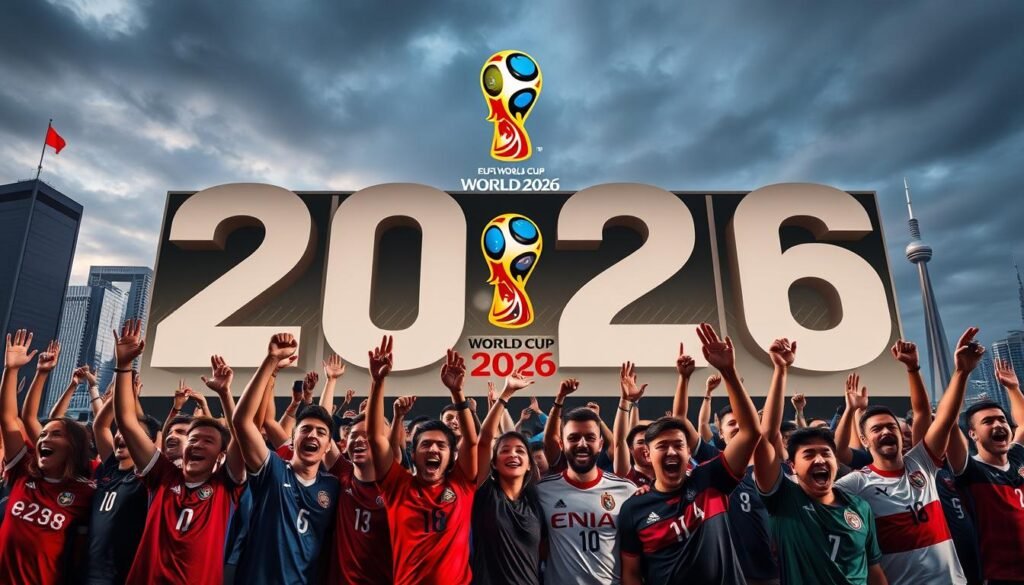
As the world counts down to the historic 2026 FIFA World Cup, excitement continues to build across North America and around the globe. This unprecedented tournament promises to deliver unforgettable moments, create new football legends, and bring together fans from every corner of the world in celebration of the beautiful game.
Whether you’re planning to attend matches in person, join the festivities at Fan Festivals, or follow along from home, now is the time to prepare for this extraordinary sporting spectacle. Stay connected with official channels for the latest updates on qualification, tickets, and tournament developments.
Get Ready for World Cup 2026
Don’t miss any updates about the biggest sporting event coming to North America. Connect with official channels now.
The 2026 FIFA World Cup will be more than just a tournament—it will be a celebration of football’s power to unite, inspire, and create lasting memories. As three nations come together to welcome the world, we invite you to be part of this historic journey toward the biggest and most inclusive World Cup ever.
